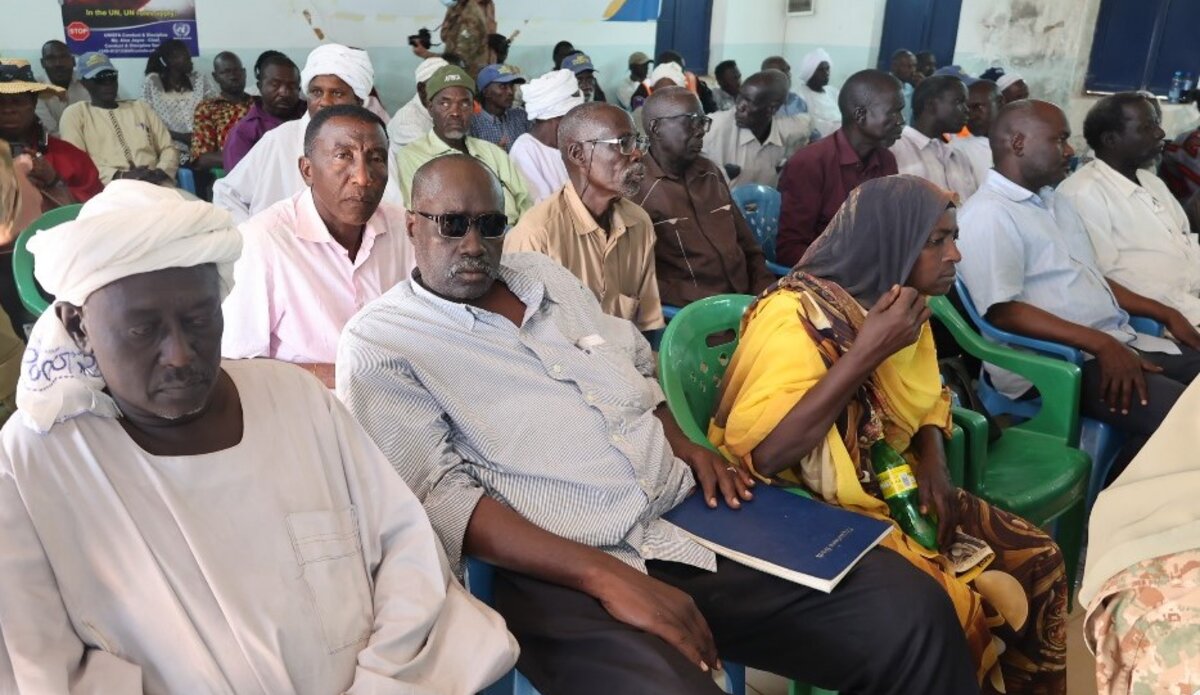Efforts to boost Law and Order Mechanisms in Abyei
UNISFA, in collaboration with Concordis International, recently held a workshop to strengthen community law and order mechanisms among Ngok Dinka and Misseriya communities. Some 80 participants from the two communities, the Joint Community Peace Committee (JCPC), the Joint Protection Committee (JPC) and the Joint Traditional Court (JTC), as well as representatives of women and youth associations were in attendance.
The workshop, which aligns with the broader UN Rule of Law Support Strategy for Abyei, aimed to strengthen grassroots law and order mechanisms in the area as well as equip community leaders with the tools to manage disputes, improve accountability, and integrate traditional justice mechanisms within the broader rule-of-law frameworks.
The 2016 Noong Agreement led to the establishment of community peace structures such as the JCPC, JTC, and Community Protection Committees (CPCs), which now serve as the de facto mechanisms for law and order. However, these structures face increasing challenges, exacerbated by the ongoing crisis in Sudan and a growing population in Abyei.
Participants discussed customary legal framework, dispute resolution mechanisms, and key legal principles such as fair trial, due process, and detainees’ rights. Other areas covered include the role of traditional courts in delivering justice and resolving conflicts at the community level, as well as the challenges of integrating human rights principles and promoting gender inclusivity within customary justice systems.
At the end of the workshop, the participants proposed the appointment of four women representatives from the Ngok Dinka and Misseriya communities to the JCPC and CPC in efforts to promote gender inclusion in traditional dispute resolution mechanisms. They further explored revising traditional governance structures in response to repeated calls for greater transparency, accountability, and inclusivity.
OIC-Acting HoM/FC, Brigadier General Ameer Umrani, called on the participants to translate the outcome of the meeting into tangible actions.
“The real work begins now. This is just the beginning of our concerted efforts to support the capacity of joint mechanisms in enhancing community-based mechanisms for improved law and order. Strengthening these institutions is crucial to maintaining peace and stability in Abyei.”
The authorities highlighted the need for more sensitization of statutory laws and procedures, human rights and due process as well as on the UN Standard Minimum Rules for the treatment of prisoners (the Mandela Rules; A/RES/70/175), the UN Rules for the Treatment of Women Prisoners and Non-Custodial Measures for Women Offenders (the Bangkok Rules; 2010), and other applicable standards; concepts of due process and fair trial are essential rights in legal proceedings and human rights standards.
 UN
UN United Nations Peacekeeping
United Nations Peacekeeping


